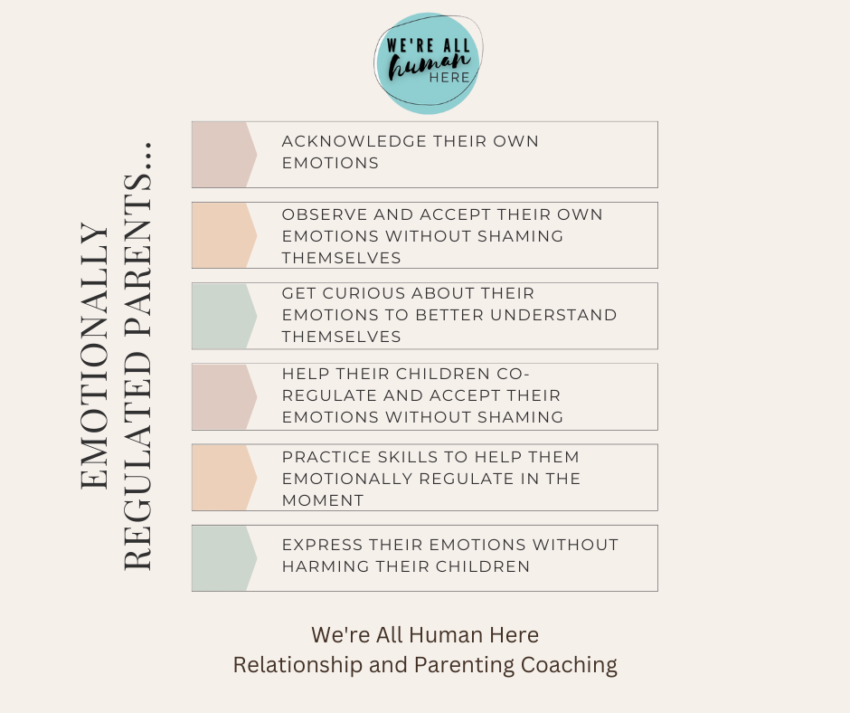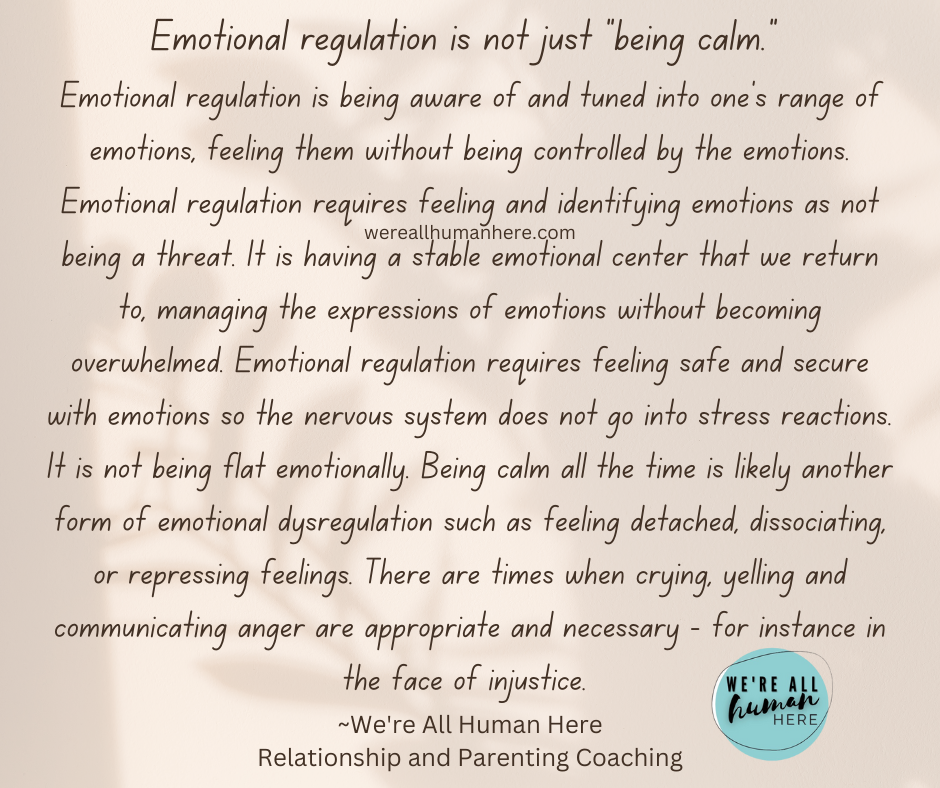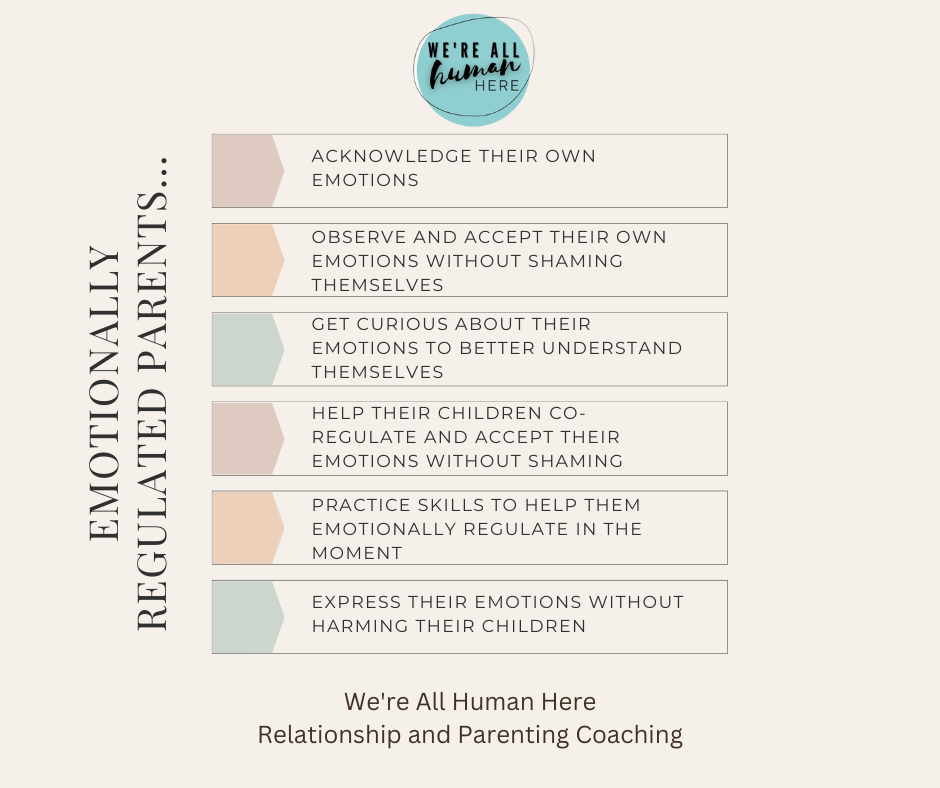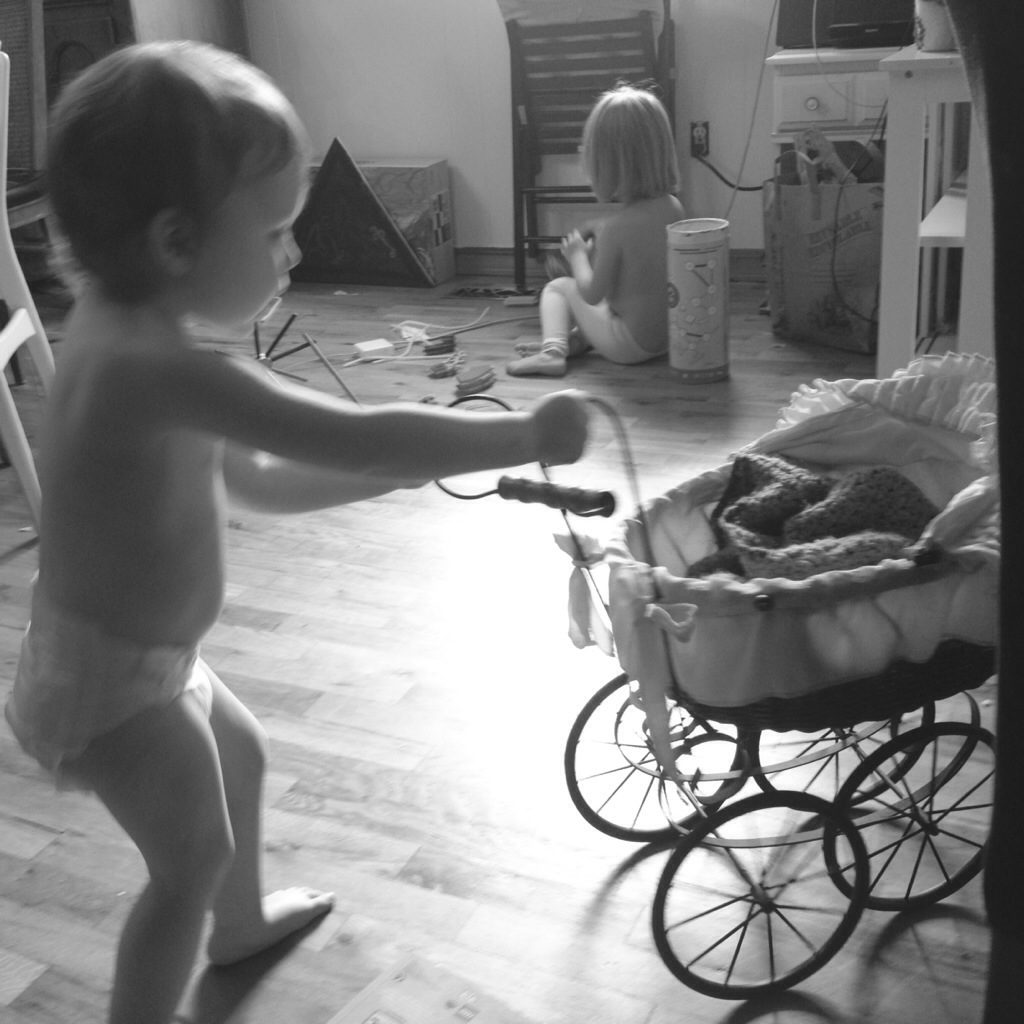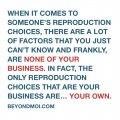We set ourselves up for failure when we get this wrong about emotional regulation.
- “Emotional regulation refers to the process by which individuals influence which emotions they have, when they have them, and how they experience and express their feelings. Emotional regulation can be automatic or controlled, conscious or unconscious, and may have effects at one or more points in the emotion producing process.” –(Gross, 1998, p. 275).
One of the mistakes I made when I first started trying to work on my own emotional regulation skills was to believe that being emotionally regulated meant always being calm. And when I couldn’t do it, when I feel like I was “the calm to my child’s storm” I felt like a failure, overwhelmed by shame. Expecting to always feel calm set me up for failure. It didn’t work. Even with therapy, even with a decade of working on it, even with all the scripts I saved and reading I did and videos I watched. That’s because feeling calm no matter what ISN’T true emotional regulation. In working with our private relationship and parenting coaching clients, I’ve seen that I’m not the only one that has made this mistake. Which is why in our prerecorded Emotional Regulation for the Tapped Out/Burned Out Parent Masterclass (watch or listen any time that fits your schedule), we look at what emotional regulation really is and isn’t.
In the Emotional Regulation for the Tapped Out/Burned Out Parent Masterclass we explain emotional regulation this way:
Let’s chat in your free virtual private relationship or parenting consult and get you started in reaching your relationship and parenting goals today.
What Emotional Regulation Involves
- Initiating actions triggered by emotions.
- Inhibiting actions triggered by emotions.
- Modulating responses triggered by emotions.
Tapped out? Burned out? Struggling to manage your emotions when your child is having a hard time? You’re not alone and you can develop the skills to emotionally regulate.
What Emotional Regulation May Look Like
- Feeling balanced and in control of your emotional reaction
- Pausing to collect one’s thoughts in a difficult situation
- Manage intense emotions without shutting them down
- Aware of emotions without being controlled by your emotions
- Better able to manage stress
- Protecting important connections and relationships
- Actively listen to the needs of others
- Express your needs in constructive ways
- Remain professional in work situations
- Asking questions to clarify and better understand
- Not taking things personally
- Not taking the bait
- Effectively communicate in times of heightened emotions
- Act according to your personal values and goals
- Recognizing when it not helpful to engage
- De-escalating self and others
- Taking time and space to process difficult emotions
- Reframing difficult situations or emotional expressions of others
Do you respond with calm to your child’s chaos and sometimes find that it doesn’t seem to help anything? This masterclass breaks down practical action steps that you can use right away to help you and your child “When Responding With Calm Doesn’t Seem to Work.”
What emotional dysregulation may look like:
-
-
Yelling out of control
-
Shutting down
-
Running away/hiding
-
Antsy/can’t be still
-
Threatening/negotiating
-
Giving up/pretending to not care
-
Being excessively tired
-
Elevated blood pressure
-
Physically aggressive (with people and/or things)
-
Intense mood swings
-
Snapping
-
Uncaring
-
Feeling hopeless
-
Resenting someone
-
Unable to stop crying or crying that seems out of proportion for the situation
-
Irritability
-
Headaches
-
Beating self-up with negative self-talk
-
Overwhelming guilt or shame
-
Anxious people are angry at you
-
Wishing you could die/disappear
-
Dissociating/spacing out
-
Body temperature fluctuation (i.e. suddenly hot or cold)
-
Indecision
-
Hating everything
-
Demanding
-
Body tension/clenching
-
Nail biting/skin picking/hair pulling
-
Brain freezes up/goes blank/can’t think
-
A desire to run or break things or other physical release
-
Procrastination
-
Excessive use of escapism
-
Sudden stuttering
-
Increased heart rate
-
Overexplaining
-
Withdrawing
-
Catastrophizing/playing out worst case scenarios
-
Moping
-
Perfectionism
-
Impulsivity
-
Self-harm
-
Suicidal thoughts or actions
-
Substance misuse
Most people don’t like how it feels to struggle with emotional regulation but they just may not know how to regulate. Having unrealistic expectations of what emotional regulation is doesn’t help. You can develop effective emotional regulation skills that help you be the kind of parent and partner you want to be with practical action steps that are doable and sustainable.
Starting with letting go of an unrealistic definition of what it means to be able to manage your emotions.
The Emotional regulation for the tapped out/burned out parent is part of our Parenting with Connection Masterclass Series: Yell less and actually be heard; Why your kids are fighting so much and how to change it; Stop butting heads with your child; When responding with calm doesn’t seem to work; Internet, Devices, and Your Family. Save on the whole bundle -
